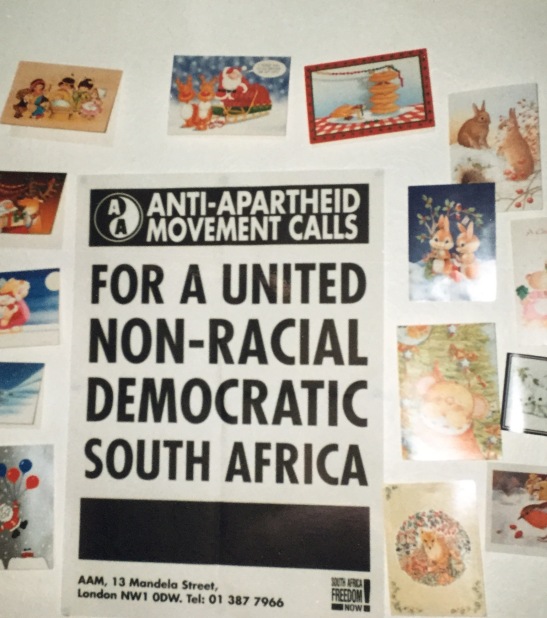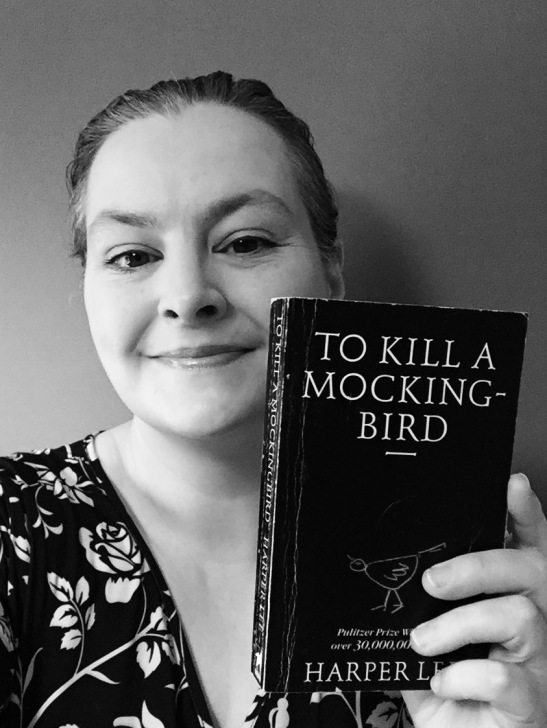AUTHOR ALLSORTS
A group of published UK-based authors and illustrators of picture books, children's and YA.
The Book That Changed My Life by Shirley-Anne McMillan (contains major spoilers!)
I was fourteen in 1989. The Troubles in Northern Ireland had been going on since before I was born and those of us who only knew our country in this way had lived a strange existence where we were simultaneously used to bomb scares and hearing about daily murders, and also frightened that it would happen to our families and loved ones because sometimes it did happen to them. But at the same time, we were living our lives the way that lots of other teenagers did- listening to music, watching American TV, hanging around the town hoping to see the people we fancied.
But for us there was a way of doing things that wasn’t the same in other countries, because we largely only did those things with our own sort. As a Protestant I went to school with Protestants, I lived in a Protestant area, my friends were all Protestants, my family was Protestant, the youth club was Protestant. And we didn’t mix with the Catholics. I met some Catholics at University but never had a close Catholic friend until I was in my mid-late 20’s. That was fairly typical for people in NI. Of course, there were exceptions, but you largely stuck to your own. Things are still like this in many ways- the vast majority of schools here are still segregated and we still have a lot of segregated housing.
So, growing up in this way I developed a certain view of news events and politics which was different to the views of my Catholic peers. We all had experiences and we all had realities. Very little of it was fictional. But what we had a hard time realising was that our stories didn’t cancel out anyone else’s, even if their stories contradicted ours. When people are pointing guns at one another there is little room for trust, and so we never really got to talking about things, and we could never really understand that weird paradox.
Enter: the book that changed my life.
We had been told to read To Kill A Mockingbird over the summer in preparation for studying it at GCSE. Summer holiday homework- what a total drag. But as I read the final chapters on my bed, tears streaking my face, I was really glad that I wasn’t reading them sitting in a classroom. No book had ever made me cry before. I was absolutely struck by the injustice of that ending, and I knew that it was truth. And I knew that Atticus had done the right thing- to defend a cause that he knew was going fail. I could see how it was worth it, despite everything. I think it was the first time I saw outside my own life how other people suffered because of extreme prejudice and the need in their communities for a scapegoat.
I was fourteen in 1989. The year that the Guildford Four were released from prison after 14 years in prison for terrorist crimes which they did not commit. I watched them on the news leaving prison. A family member said ‘I don’t care what they say. There’s no smoke without fire.’ I began to wonder if that was true.
- The Free Nelson Mandela campaign was everywhere. I cut an address out of a magazine and wrote to the Anti-Apartheid Movement to ask for leaflets. I stuck their poster on my wall. We had been told that Mandela was a terrorist. That was the language they always used about him. I began to wonder why so many people wanted the release of a terrorist.

To Kill A Mockingbird had made me connect with the possibility of someone else’s story. Not that I immediately doubted everything that I knew, but that I now wanted to know more.
These days the term is ‘social justice warrior’ and it is used derisively, mainly by people who have no need of a social justice warrior. I believe that, in Northern Ireland, groups who face institutional discrimination will eventually see their campaigns succeed. Small, unfunded groups of activists who are constantly fighting for the rights and lives of transgender people, queer people, women, poor people, refugees. They will carry on as long as they can, because it is the right thing to do, even when things look hopeless. I admire them more than I can say. I want to support them as much as I can.
In 2014 I signed a contract with Andrew Nurnberg Associates. As I looked down the list of other authors who had signed with the agency I saw Harper Lee’s name. What an honour to have this literary connection to the person who wrote me into a different way of seeing things. The person who wrote these words about conflict and courage- words which really meant something to a kid who saw men with guns in their hands on a daily basis;
“I wanted you to see what real courage is, instead of getting the idea that courage is a man with a gun in his hand. It’s when you know you’re licked before you begin, but you begin anyway and see it through no matter what.’
Thank you, Harper and Atticus. x

 Shirley-Anne McMillan
Shirley-Anne McMillan
Shirley-Anne McMillan is a writer of contemporary fiction for Young Adults. She lives in rural Co. Down with her family and also works atShimna Integrated College as the Alternative Chaplain, running a high school Gay Straight Alliance and a Peace and Integration initiative.
In 2013 Shirley-Anne won the Society of Children’s Book Writers and Illustrators ‘Undiscovered Voices’ competition with an extract from her novel, A Good Hiding.
A Good Hiding was published by Atom in 2016. The Irish Independent called it ‘A brisk and breezy novel that, despite the heavy subject matter, had me laughing aloud more than once’. Her second novel, The Unknowns, was published by Atom in December 2017.
Shirley-Anne likes Nick Cave, singing, making zines, and walking in the woods.

You must be logged in to post a comment.